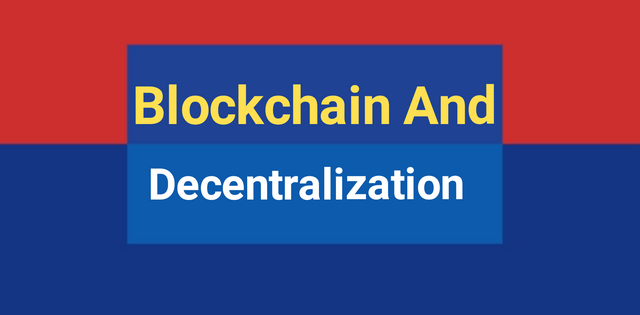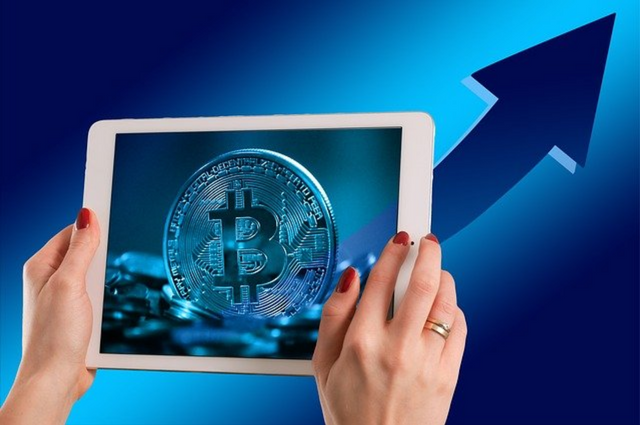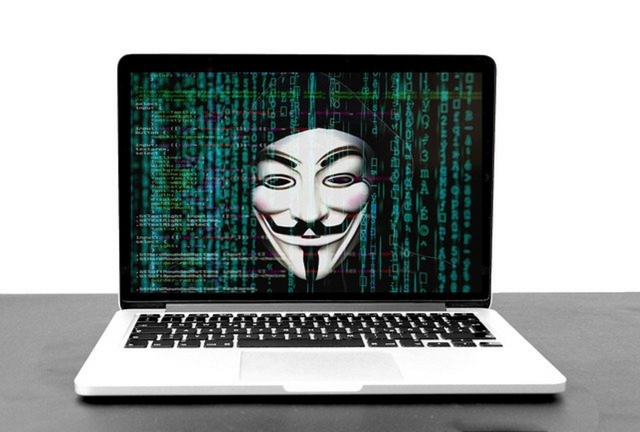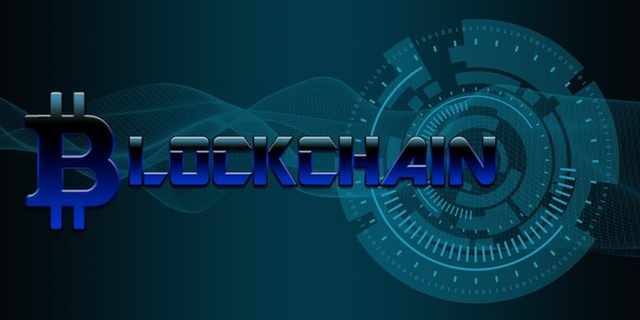
Edited withCanva

(2) Define decentralization. Describe the advantages and disadvantages of a decentralized system. In what areas of life can a decentralized blockchain be helpful?

Decentralization
Decentralization refers to a process whereby a network of computers that can also be called nodes are made to interact directly on a peer-to-peer basis without the interference of third parties that may want to act as central servers. The decentralized network operates in a manner that there is usually a distribution of all the information to all the network nodes. Consequently, every node is made to have an updated copy of all the data that is recorded on the network. In a decentralized network it is also possible for data to be privately distributed in such a way that the private information contained can be validated without having to go through an intermediary. Normally, a consensus mechanism which must have been agreed upon is utilised in the validation of data. Oftentimes and mostly, this would have to involve most, if not all, of the other computers that have been connected as the network. The computers usually work by verifying whether the data is valid before such is now imprinted permanently onto the block chain of the network.
Actually, the first time decentralisation was proposed was during the Cold war and it was meant to serve as a military technology. Even after this proposition, most public utilities and internet technologies remained highly centralized until the advent of the blockchain technology with the coming of Bitcoin in 2009. What happens in a decentralized network is that all the participating nodes act independently of one another. Instructions are not obtained from any central authority. Instead, these nodes which are decentralized make use of common rules in connecting to one another. However, their sovereignty is highly maintained and this makes it possible for them to independently take care of their own privacy. This is a security measure for the network and equally ensures a democratic system of governance which is the hallmark of decentralized systems.
Centralisation is the opposite of decentralization. This is a situation whereby a system has to heavily rely on a few relay nodes for its control. This reduces the stability of the network in the case that the central nodes are mismanaged. A decentralized mechanism, on the other hand, as has already been said, is able to directly connect in a system of peer-to-peer network or to connect to one another through a network of nodes that can be managed centrally. Most of the blockchains in the cryptocurrency world operate as decentralized networks.
Usually, when a network is connected in a decentralized manner a consensus mechanism is adopted where the nodes rely on this mechanism in reaching an agreement on the validity of blocks that should be added to the blockchain. The moment the block is made to contain the validated data, it would be distributed to all the nodes. This makes it impossible for data that has been recorded to be altered. Such data is usually recorded on the publicly distributed ledger. For a decentralized data to be changed, a majority of the nodes would have to undergo an updating process and this can inform the network, early enough, that a fraudulent process may have begun. This is unlike centralised network where the central database can easily be changed. In the decentralized network the updating of such information must be done within a very short period of time if such an update must be accepted by other nodes that may not have been corrupted at the time. If not, this data to be updated would be rejected by the other nodes in the validation process.

Advantages Of A Decentralized System

Source
Prevention of fraud:-
Blockchain technology is built on an open-sourced ledger and each transaction is recorded on such ledgers thereby making it difficult for fraud to occur without being noticed. Miners are responsible for monitoring and maintaining the integrity of the blockchain by validating every single transaction on a daily basis. This makes the entire system invulnerable to fraudulent practices since there is a huge oversight on the network.Preventing government interference:-
The decentralized nature of the blockchain technology makes it impossible for government, central bank or any bank to control it operations. Government cannot, therefore, meddle in a way that could lead to the devaluation of course as has been seen with fiat. Government interference could often create inflation and/or hyperinflation as a result of devaluation, debasing or excessive printing of currencies within a short time. Cryptocurrencies which are built on the decentralized blockchain technology are operated as ordinary software programs that have a finite amount of coins that can be minted.Enabling faster transactions:-
The decentralized nature of the blockchain technology ensures that cryptocurrencies operate at transaction speeds that are much faster than traditional bank transactions. In the case of wire transfers with traditional banking system it could take days before a transaction is fulfilled. Transactions are made faster through decentralized blockchain and accuracy is equally ensured. This can ensure an increased speed of transaction on a global scale which can boost the global economy positively.Increasing efficiency in finance:-
Decentralization which has been seen in the blockchain technology ensures that transactions can be directly made by peers without needing a third-party. Dramatically, this improves the efficiency witnessed in financial transactions and this makes people to rely less on other financial institutions and banks.Serving as an effective store of value:-
Decentralization has led to the development of the blockchain technology which now provides a means of effectively storing value through cryptocurrencies that have been developed on this basis. The use of such cryptocurrencies like Bitcoin as a global means of moving funds ensures that people can comfortably both store and also transfer their assets even with large scale transactions.

Disadvantages Of A Decentralized System

Source
Promotes crime:-
For the fact that the nature of decentralized systems and the blockchain is anonymous such store of values like the cryptocurrency that have been developed on them have become preferred as instruments from criminal financial activities such as money laundering and payment or transactions linked to illicit drug trafficking. A typical example was in the digital black market and underground illegal venture called "Silk Road" which made use of Bitcoins for operating its criminal activities that involved creating a website where people could purchase narcotics illicitly while making payments with cryptocurrencies. The shutting down of this venture by the FBI became a major step towards tackling criminal activities as a result of decentralization particularly in the blockchain industry.Volatility in price:-
Decentralization has majorly been tested in the blockchain industry. Most of the applications of the decentralisation which would involve the use of blockchain technology wood often have to rely on the use of the system as a store of value in processing transactions that are based on the decentralized blockchain. It should be noted that only cryptocurrencies can be operated in this manner. Unfortunately, cryptocurrencies are known to be very volatile and this is the major disadvantage in using them as a store of value. It, therefore, extends to mean that decentralization which can be applied with blockchain technology can come with the disadvantage of too much volatility which could cause stores of value to depreciate immensely to the detriment of the users.Issues relating to storage:-
The use of decentralisation can involve the store of values on the systems or at least the use of value-based cryptocurrencies for enabling transactions or operations on such systems. People who are not tech savvy may experience a difficult in this regard. This is because decentralization can come with the incorporation of traditional centralised systems in a way that may require updating of knowledge by the users. If more people are to participate or adopt the usage of decentralized systems or networks it would require that people would get used to these novel systems of doing things. This may be greatly disadvantageous to the less privileged who may not even be able to afford these technologies not to talk of even getting themselves acquainted with their usage.
Some of these advantages and disadvantages are summarised in the table below:-
| Advantages | Disadvantages |
|---|---|
| Can be used to prevent fraud | Can also promote crime |
| Can prevent government interference | Could come with negative volatility in price |
| Can enable faster transactions | Could come with detrimental issues as a storage medium |
| Can increase efficiency in financial transactions | Coordinating decentralized systems could be capital intensive |
| Can serve as an effective store of value | The governance of decentralized networks could often be delegated to a few people who could form dangerous cliques |

Real-life Applications Of Decentralized Blockchain

Source
There are several areas of life where decentralized blockchain can be applied in a helpful way. Some of these include:-
For the transfer of monetary values:-
Blockchain technology, which is a decentralized system, can be applied in real life in terms of using applications that enable the transfer of cryptocurrencies of the blockchain industry as a monetary store of value. Bitcoin pioneered this industry and the industry can save huge costs for companies including enabling batch transfers in one transaction.
Equally, decentralization would eliminate bureaucracy or red tapism with the use of ledger type systems that deliver transactions in real time. This does not require third parties and can cut down on transaction fees remarkably.
The use of smart contracts:-
Smart contracts can be enacted with decentralized systems. These typically function as normal contracts that are enforced in real time in an automated manner. This removes the middleman and increases accountability more than traditional systems. Hence, it saves money and time and enforces compliance from all parties involved in any contract.
These smart contracts have been popularly deployed in areas like healthcare, government facilities and even real estate.
Internet Of Things (IoT):-
Decentralization can be applied in the area of internet of things that relies on blockchain applications. Internet of things involves incorporating decentralized blockchain contracts and applications into real life equipment in order to automate the functionalities of such equipment.
In such systems, physical objects are embedded with softwares and sensors which connect the network of physical objects and enable them to exchange data with other systems and devices in an internet-enabled environment making it possible for users and owners to remote control such facilities. This kind of technology is only possible with the decentralized blockchain.
Security of personal identity:-
Based on reports by LifeLock, an expert on identity theft, in 2017 more than 16 million Americans reported cases of identity theft and fraud. Equally, it was discovered that identity was stolen for every 2 seconds for fraudulent purposes.
Birth certificates, social security numbers, birthdates and even other information that can be sensitive could be possibly recorded on decentralized blockchain ledgers. This could make such information immutable and difficult to be fraudulently utilised thereby reducing cases of identity theft.
Use cases in the healthcare industry:-
There is a lot of promise for the use of decentralized blockchain in the healthcare industry. This can greatly reduce the cost of healthcare, streamline processes in business delivery and improve the access to medical records and information for medical experts across different geographical locations.
It involves the use of immutable and transparent distributed ledger technology to record and store medical data of patients. Such patients could then encrypt such information and make it available to their medical experts when required no matter the part of the world such information may be needed. This can save time and cost as the experts would not have to originally obtain such data again.

CONCLUSION

Decentralization usually involves an interconnectivity of computers or servers referred to as nodes in a peer-to-peer system that does not require third-party interfering in order to share information which would be publicly available to all parties at the same time. It comes with a lot of transparent features in that changes cannot be made to the records without the agreement of all parties and this prevents fraudulent usage and manipulation.
Furthermore, it is difficult for the government to interfere with this system which has been employed in healthcare use cases and in the blockchain technology which involves the store of monetary value with the use of cryptocurrencies. These cannot be manipulated by government or Central agencies. Nevertheless, there are some disadvantages associated with decentralisation which can include its use as a mode of promoting fraudulent practices like money laundering.
There have been quite a good number of use cases for decentralized blockchain in real life which can include its use as a means of monetary transfer. Furthermore, it can include interesting use cases such as smart contracts and internet of things. Equally, it can be used for the security of personal identity and is also helpful in the immutable storage of healthcare or medical records and data.
